Top Lists
Nigerian Food (Top 10)
Nigerian cuisine consists of dishes or food items from the hundreds of ethnic groups that include Nigeria.
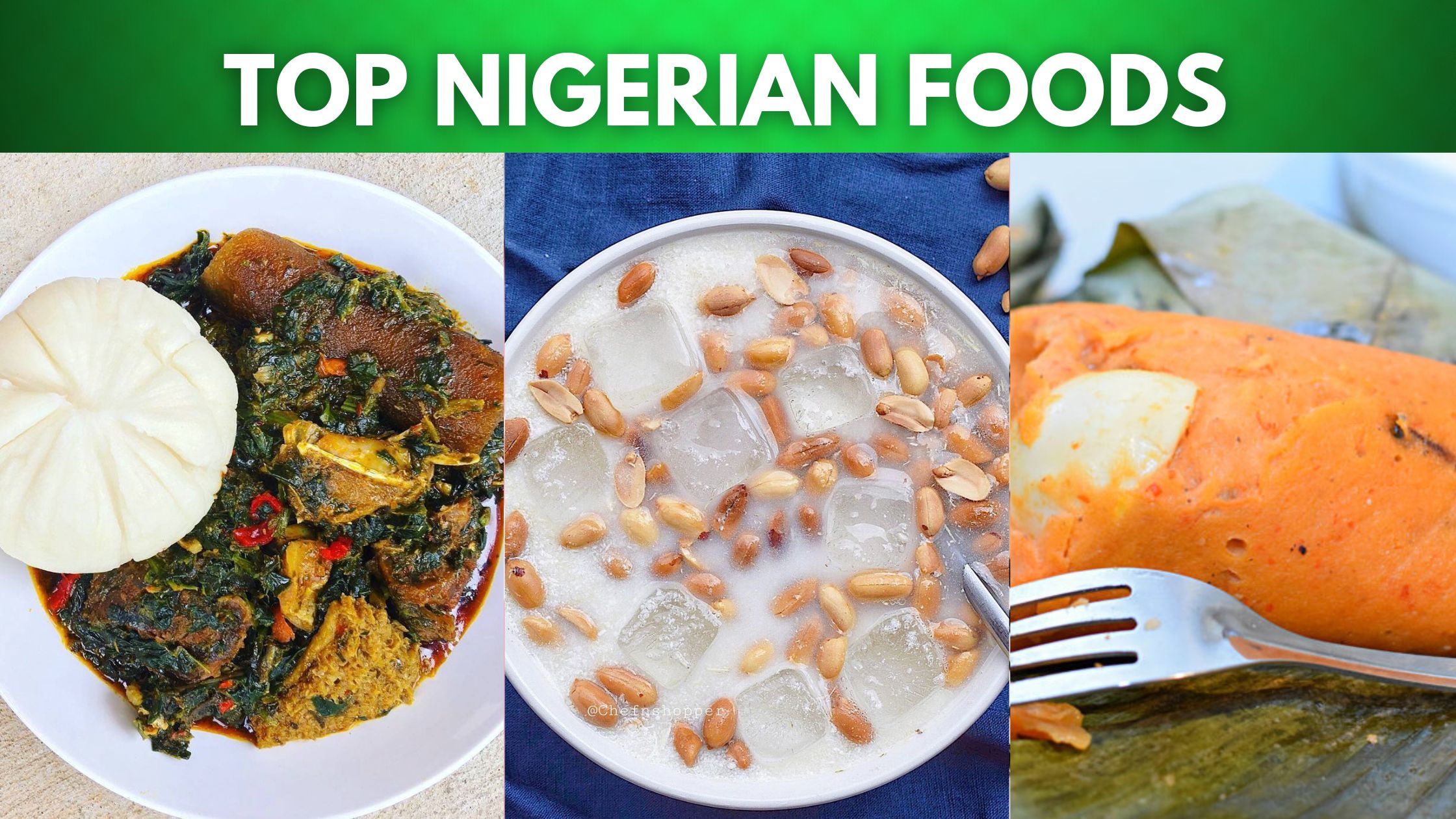
Nigerian cuisine consists of dishes or food items from the hundreds of ethnic groups that include Nigeria.
Unfortunately, Nigerian food isn’t as well-known globally as other cuisines but thanks to thanks to the internet, Nigerian cuisine is becoming more internationally well-known. More and more people are becoming curious about Nigerian food. If you’re one of those people, then this list of 10 must-try Nigerian dishes will whet your appetite even more and more.
In this article, RNN will highlight the Top 10 Nigerian food
1. Pounded Yam
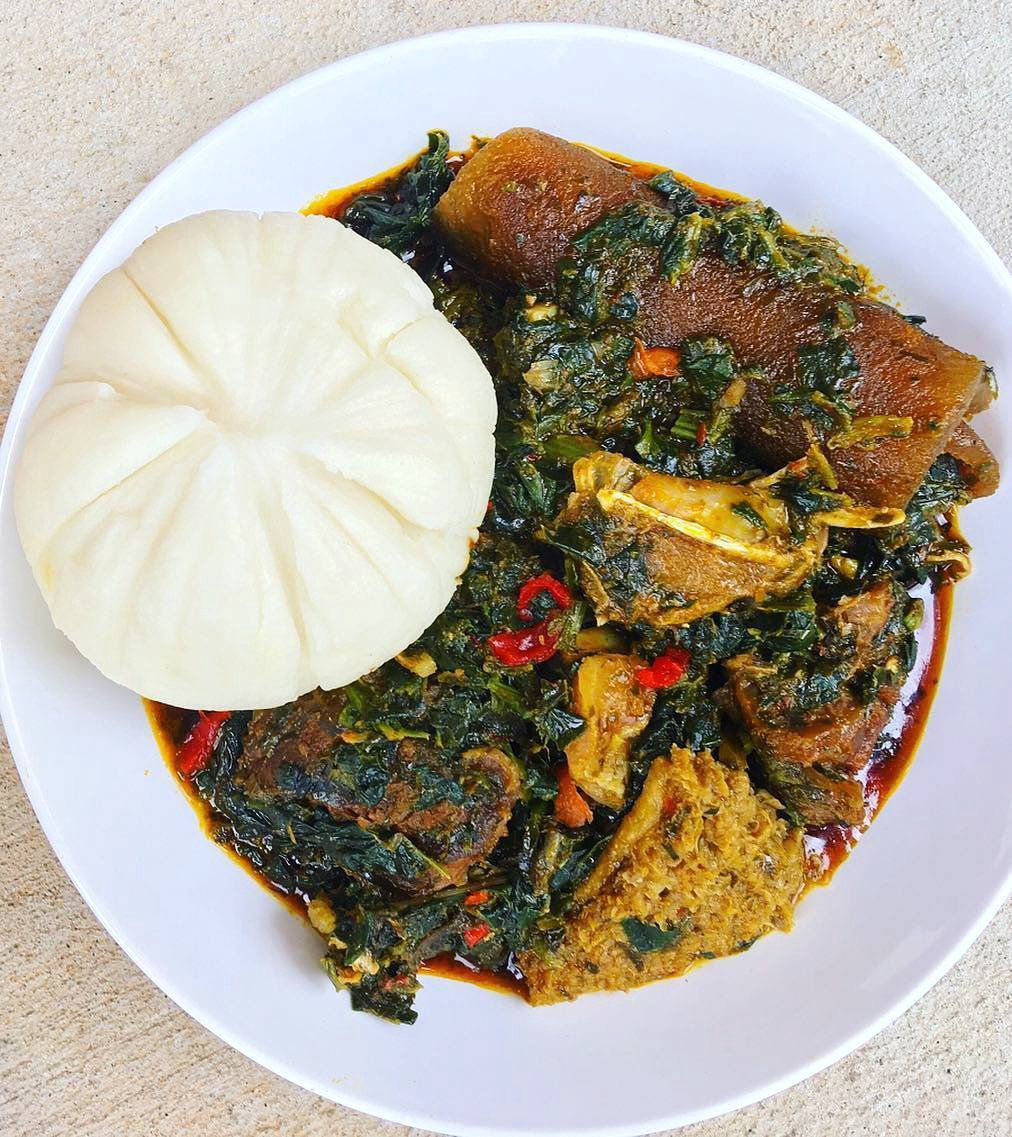
This is a very delicious Nigerian delicacy. Pounded Yam is a popular African dish similar to mashed potatoes but heavier. It is simply prepared by boiling the yam in water and slicing and pounding it until it becomes smooth and doughy. No seasonings and flavorings are needed. it is very smooth and tasty.
Pounded Yam is a staple in many West African homes, but it is not usually eaten by itself, it is often paired with many delicious African soups, and stews like Egusi, okra soup, Jute leaves soup (Ewedu), or Stewed Spinach.
It is packed with antioxidants, including vitamin C. These compounds help the body fight infection and eliminate malignant cells that create free radicals. Pounded yam is also believed to be an ideal food for individuals with arthritis or asthma.
Read Also: Countries with the largest Muslim population
2. Ewa Riro (Beans Porridge)
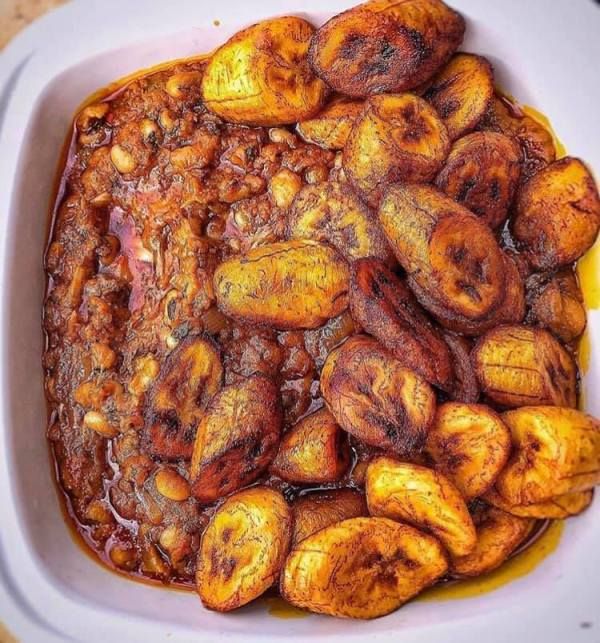
Ewa Riro is one of the Nigerian Food. Nigeria Bean porridge, also known as stewed beans, is a staple in many households in the country. It is called “Ewa riro” in Yoruba or sometimes just referred to as “Ewa”, which means beans.
Beans contain tons of nourishing nutrients that the entire family needs. When prepared the right way, Bean porridge is delicious, nutritious, and offers myriad health benefits.
Beans are a good source of protein, B vitamins, iron, copper, magnesium, zinc, and phosphorus. They are naturally low in fat, free of saturated fat, and cholesterol-free. Beans also have a low glycaemic index (ranging between 10-40), meaning they do not raise your blood sugar levels sharply.
Read Also: Loan Apps With Lowest Interest Rate In Nigeria
3. Amala
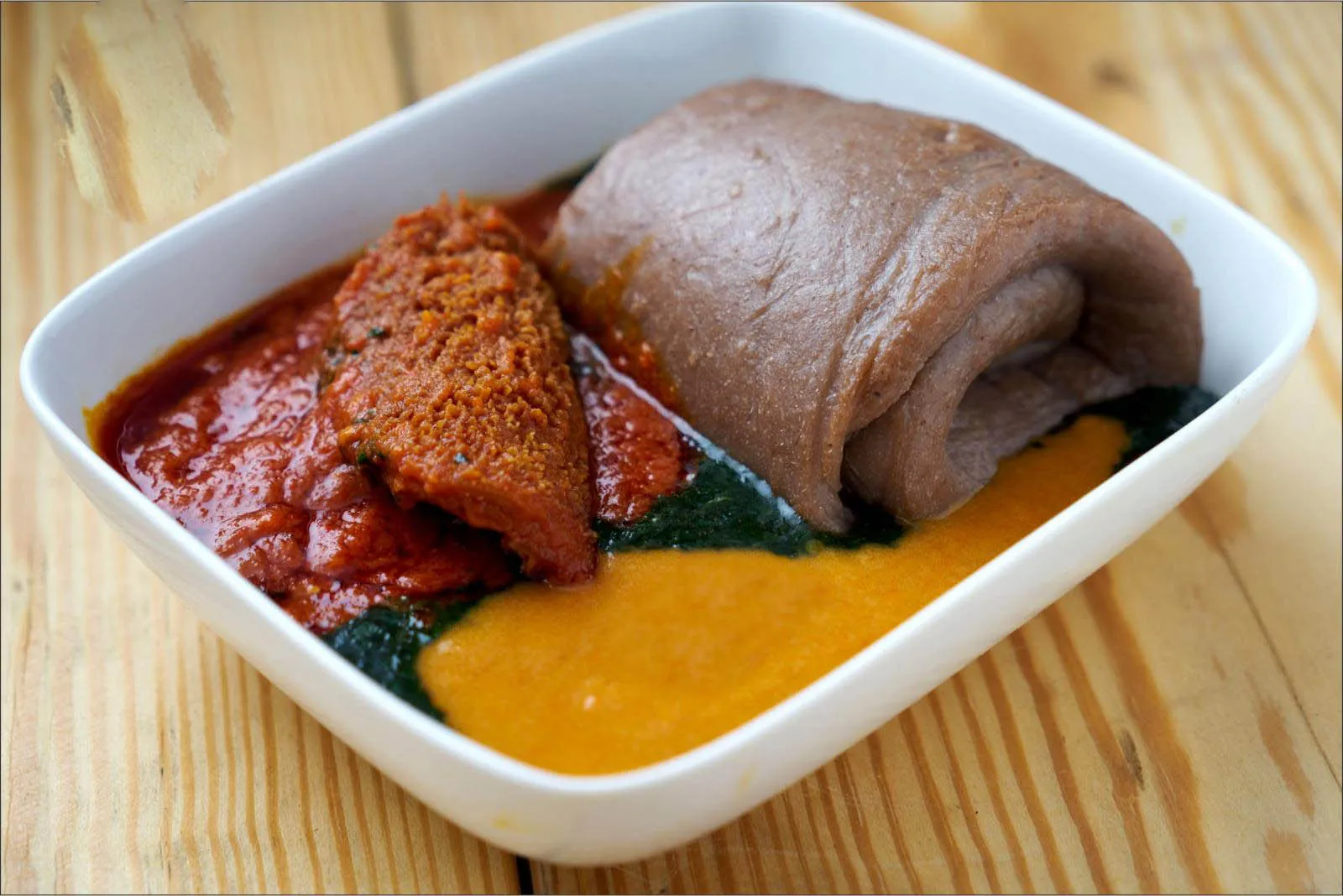
Amala is a classic Nigerian food, mostly eaten by the Yoruba people. It is made of yam and cassava flour. Tubers of yams are peeled, sliced, cleaned, dried, and then ground into flour. It is also called èlùbọ́. Yams are white in color but turn brown when dried which gives àmàlà its color.
It is a popular side dish served with ewédú and gbẹ̀gìrì (black-eyed beans soup) but is also served with a variety of other ọbẹ (soups), such as ẹ̀fọ́, ilá, and ogbono.
Amala berries are rich in antioxidants, which reduce the risk of chronic health conditions like heart disease, diabetes, and cancer. Amala berries are also an excellent source of Vitamin C. Vitamin E
Also, It is a rich source of polyphenols and vitamin C, which help support digestion and strengthen immune functioning.
Read Also: Countries With Highest Tax Rate In The World
4. Fufu
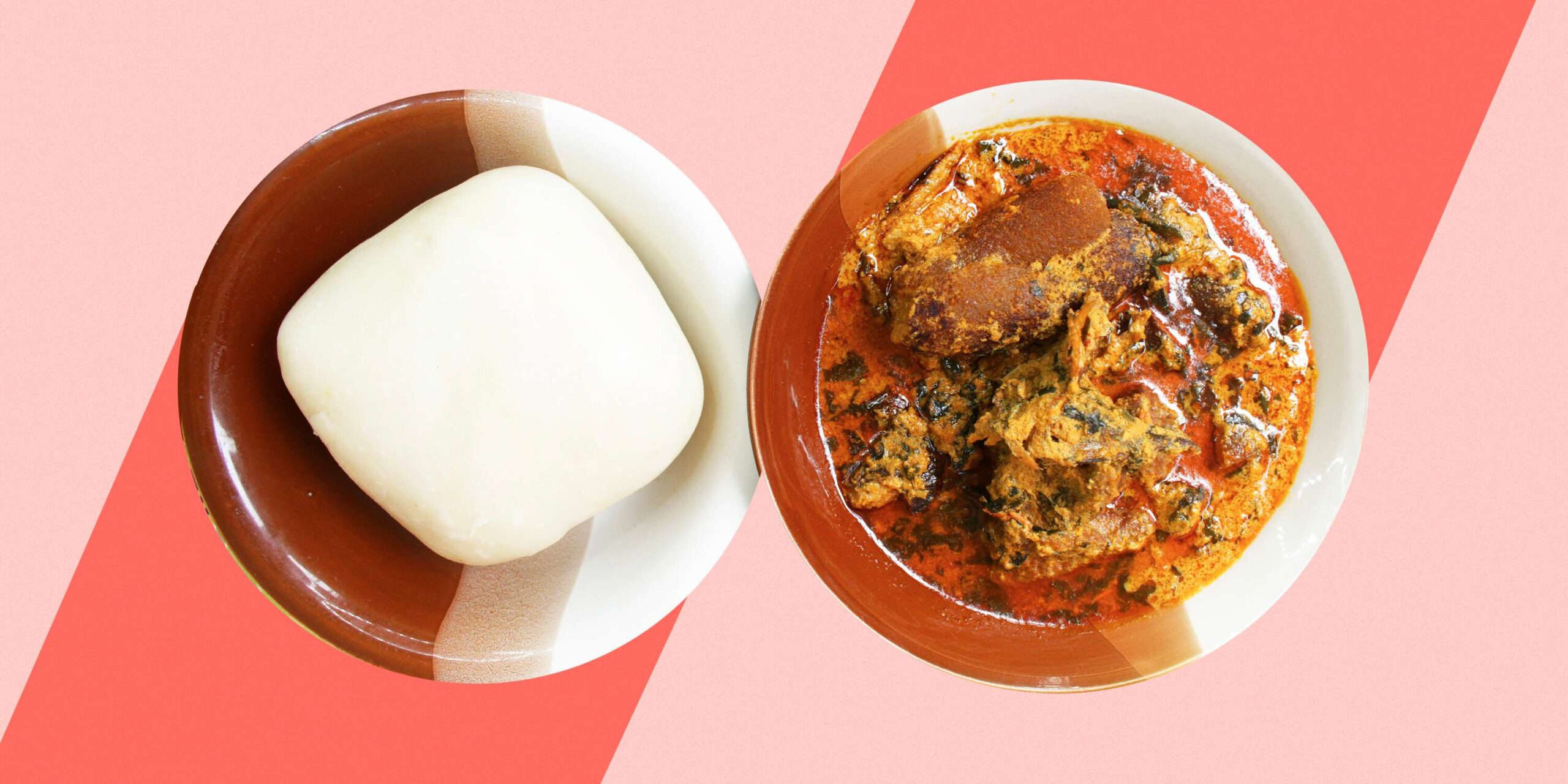
This is also one of the Nigerian food In Nigeria, fufu or akpu is a popular food made from fresh or fermented cassava. Akpu, properly punctuated as akpụ in Igbo, is the Igbo word for cassava. Requiring several days to make, akpu is a wet paste often eaten with egusi soup. Akpu is traditionally made by peeling and washing raw cassava until it is white.
Fufu has immense health benefits: Not only is it low in cholesterol, but it is also rich in fiber, potassium, and resistant starch, which feeds the beneficial bacteria in your gut and may help reduce inflammation and promote digestive health, and contains vitamin C.
5. Tuwo
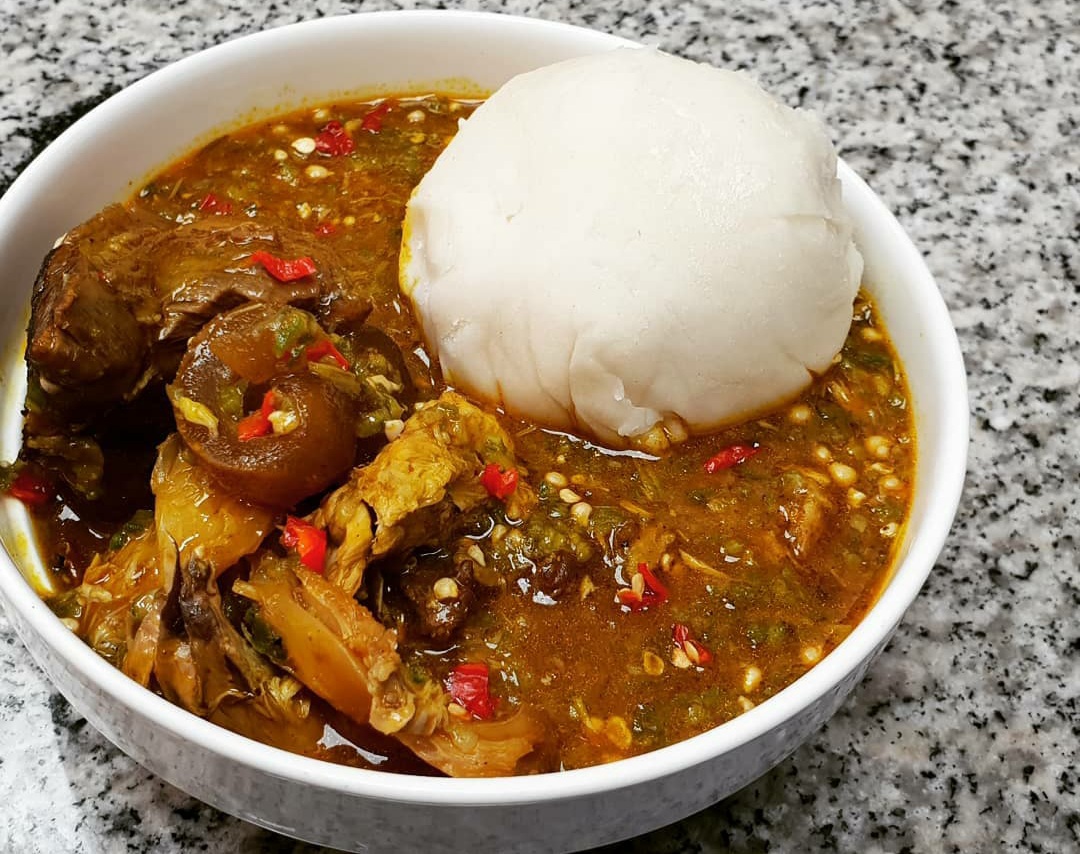
Tuwo shinkafa is a type of Nigerian dish from the northern part of Nigeria. It is a thick pudding prepared from local rice that is soft and sticky and is usually served with different types of soups like miyar Kuka, miyar kubewa, and miyar taushe.
Shinkafa is also known as Hausa fufu, it is made from rice and can be eaten with bean soup, known in Yoruba land as gbegiri. This food is enjoyed mostly in the Northern part of Nigeria but other people from different tribes also take this food.
However, it is usually made from local rice that has not been stripped of its nutrients. Hence, this meal is rich in many vitamins and nutrients. Some of the nutrients in Tuwo shinkafa are magnesium, selenium, and manganese.
6. Jollof Rice
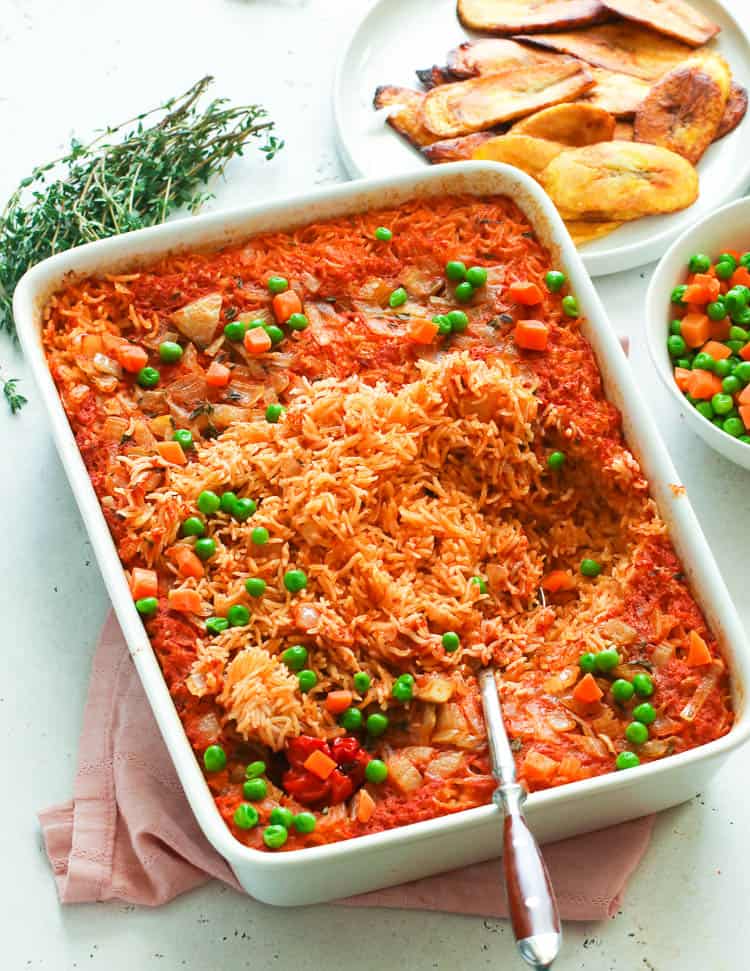
This is also a very common delicacy eaten in almost every part of the country. Jollof, or jollof rice, is a rice dish from West Africa. The dish is typically made with long-grain rice, tomatoes, onions, spices, vegetables, and meat in a single pot, although its ingredients and preparation methods vary across different regions.
It’s an iconic dish, with massive regional significance across West Africa and a staple in celebratory social gatherings.
Also, Jollof rice is high in calories and contains a few grams of fiber or other nutrients. This makes it an unhealthy option for people trying to lose weight or keep their waistline slim.
7. Garri
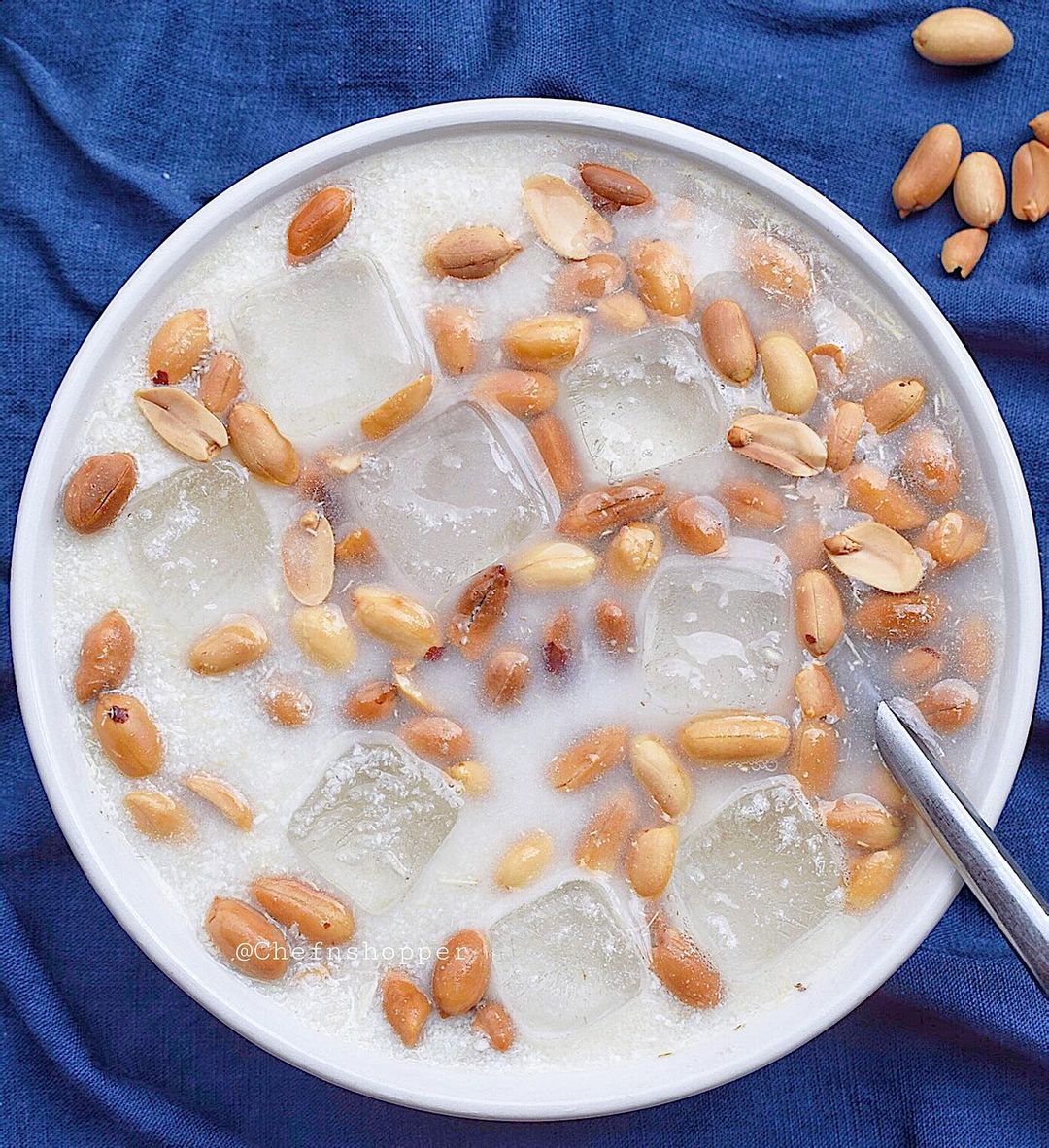
Garri is a popular Nigerian Food. According to Wikipedia, In West Africa, garri (or gari) is the creamy granular flour obtained by processing the starchy tuberous roots of freshly harvested cassava. Another common name is Galli (or Gali). All these spellings and wordings are equivalent and used widely to designate this same product.
In the Hausa language, the term ‘garri’ can also refer to the powdery granules obtained from processing other crops such as guinea corn, maize, rice, yam, plantain, and millet.
Garri is one of the cheapest staple food consumed across West Africa; it is popular in Nigeria, Ghana, the Republic of Benin, and Togo. It is also known as “gari” and is one of the most accessible foods to the masses in these regions.
It helps to absorb toxins that go into your intestines and it also helps improve your digestive health. You can soak garri in water with milk to have a combined effect. The vitamins from milk mixed with that in garri make for a great combination.
Moreover, Garri is not a good food choice for people with diabetes because it is high in carbohydrates and can cause spikes in blood sugar levels. Garri is also high in fiber, which can cause gastrointestinal problems like constipation and flatulence.
8. Moi-Moi
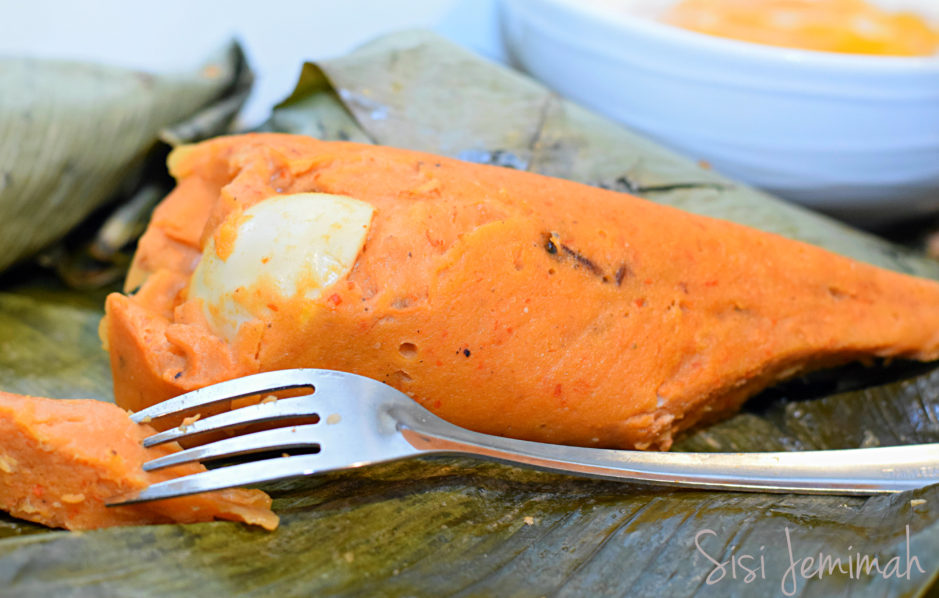
One of the really good foods you can eat in Nigeria that will blow your taste buds is Moi Moi. Moi-Moi or Moin Moin is a traditional Nigerian meal. It is a steamed or boiled bean pudding made from a mixture of washed and peeled black-eyed beans, often combined with onions and fresh ground red peppers, spices, and other ingredients. It’s a protein-rich food that is a staple in Nigeria.
It is delicious, easy to make, and inexpensive. Moi-Moi can be served as lunch or dinner, and we reheat the leftover in the morning and use it as a side paired with pap or custard. However, This delicious delicacy is good, healthy, and highly rich in protein and other essential nutrients that play an important role in our bodies.
9. Ogi (Pap) and Akara (Bean cake)
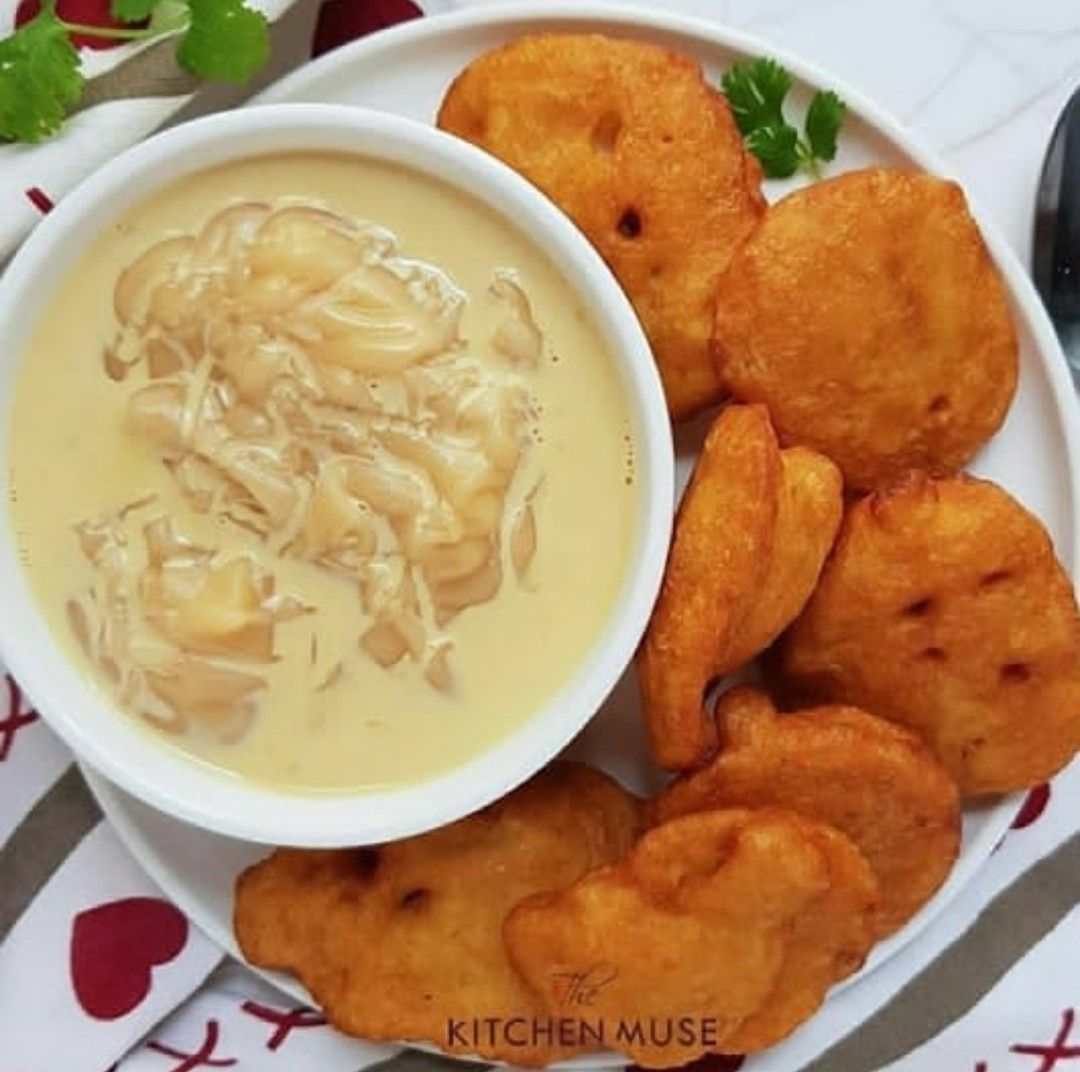
This is one of the most popular food in Nigeria. Pap and Akara are also Nigerian food, Pap, ‘ogi’ or ‘akamu’. Ogi, a local name for pap among the Yoruba and popularly called “akamu” by the Igbo, is a simple Nigerian breakfast meal made from fermented corn.
Akara, also known also fried bean cakes are mouth-watering snacks. This snack can be eaten at any time of day with pap, bread, and cornstarch (agidi or eko). The basic ingredient used for the preparation of this food is beans.
Pap and Akara is a good breakfast food with benefits, In the same vein, pap is an energy-giving food required for optimal body function. Akara is equally an ideal food for those highly engaged in brain work because its vitamin B1 content (thiamin) helps the brain to function properly; so your children need it more.
However, It is Naija’s weekend morning meal for most homes because of its light and filling nature. Eating Akara and pap boosts energy metabolism to get on with your daily activities with ease. Also, it can be eaten for breakfast or dinner or served as a pre-proper meal.
Akara is made of beans which are high in fiber and antioxidants. Beans aren’t just good for the waistline, they may also aid in disease prevention. Akara is a traditional Nigerian dinner that helps reduce your risk of heart disease and stroke, and it also helps to prevent cancer.
10. Suya
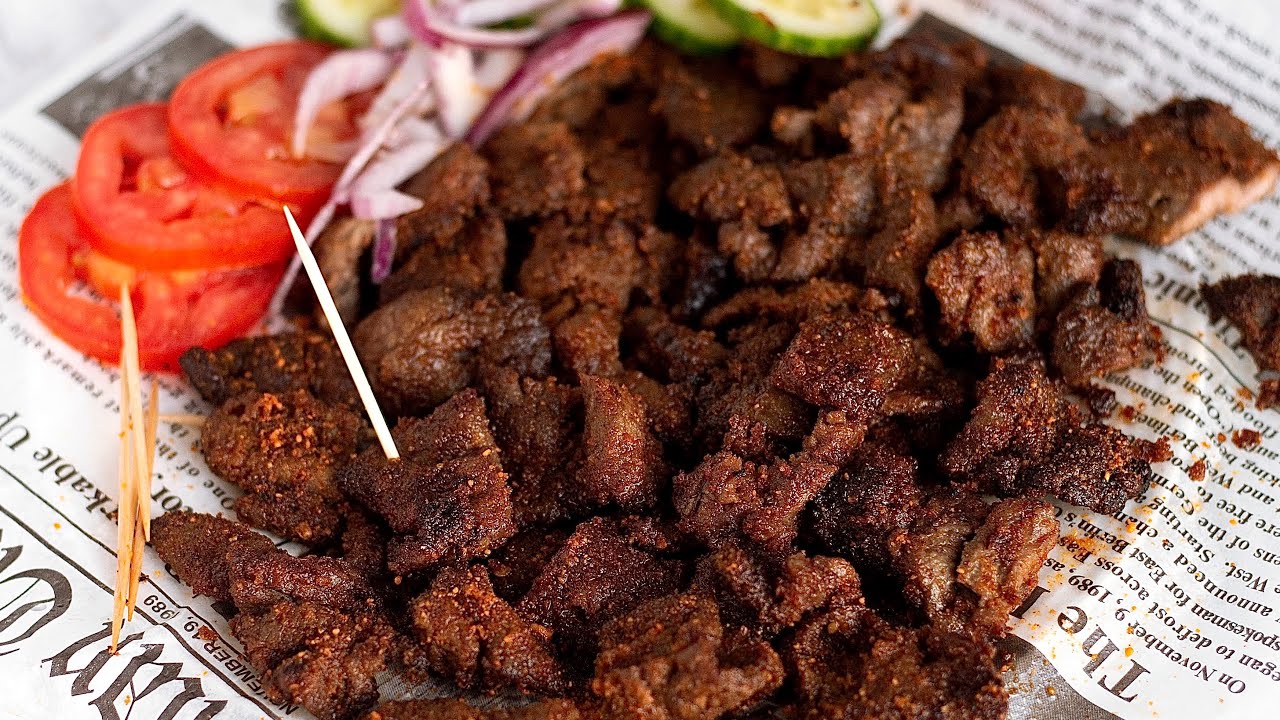
Suya or Tsire is a traditional smoked spiced meat skewer that originates from Northern Nigeria, Hausa Land, and is a popular food item across West Africa. Tsire is a big part of Hausa culture and food and is historically prepared and made by Hausa men.
It is generally made with skewered beef, ram, or chicken. Innards such as kidney, liver, and tripe are also used. The thinly sliced meat is marinated in various spices, which include a traditional Hausa dehydrated peanut cookie called ‘kwulikwuli’, salt, vegetable oil, and other spices and flavorings, and then barbecued.
There are many variations of Tsire in traditional Hausa cooking (such as Balangu, Kilishi, etc..), but the most popular is suya. It is traditionally served with an extra helping of dried pepper mixed, with traditional Hausa spices and sliced onions.
Although it is a traditional Hausa Nigeria dish, it has permeated Nigerian society, being affordable for all and available everywhere. It has been called a unifying factor in Nigeria.
However, it has become a Nigerian national dish with different regions claiming the superiority of their recipe and methods of preparation, but similar grilled meat recipes are common in many West African countries.
Conclusion
Nigeria has one of the best cuisines in the world, which comprises dishes or food items obtained from the numerous ethnic group that makes up the country.
Even if you can’t book a ticket to Nigeria, you can still enjoy the delicious dishes the country has to offer. With this collection of easy recipes, you’ll immerse yourself in the wonderful culinary world of Nigeria.
Give your taste buds a break from your typical weekday lunch or dinner! Treat yourself to a delectable Nigerian dish.
